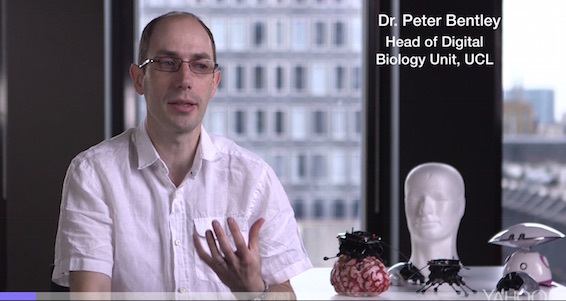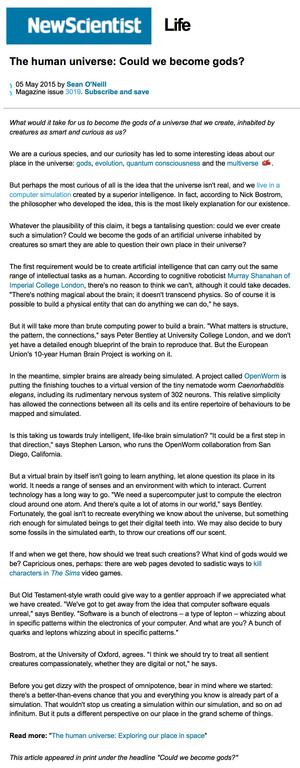Time time ago I was asked by Dominic Burgess (a freelance graphic designer, composer, and more recently, comic actor) to help explain a little something about Moore's Law for a series of short comedy films he was producing for the Guardian website. I spoke on camera about it and I'll quote myself from my book Digitised on the topic below:
Gordon Moore and Robert Noyce founded a certain company called Intel in 1968. Their work and the work of many other pioneers around the world resulted in a transformation of electronics. While early integrated circuits only had a few hundred or thousand transistors, steady improvements in manufacturing techniques allowed more and more transistors to be placed on one chip. (Much of the early growth in the 1960s was driven by the American missile and Apollo Space programmes.)
The growth in complexity of integrated circuits led Gordon Moore to make a prediction in 1965 , where he noted that from the invention of the IC in 1958 to 1965, the number of transistors on a chip had doubled each year. He predicted that this trend would continue for at least another decade. He later revised this to say that the number of transistors on a chip would double every two years. In 1970 the Caltech professor Carver Mead coined the term “Moore’s Law” for this prediction.
Remarkably, the “law” appears to have held ever since. By the mid 1970s there were ten thousand transistors on a single chip. By 1986 we could fit more than one million transistors on one chip. By 2005 we could fit a billion transistors on a chip. Although there are frequent predictions that Moore’s Law will soon break down because the tiny size of transistors are now approaching the limits allowable by the laws of physics, so far the improvement of this remarkable technology continues unchecked.
Computer technology has always embraced the very latest in electronics, so the amazing improvements in silicon chips corresponded to an equally amazing improvement to computers from the 1960s. A colleague of Moore at Intel, David House, estimated that Moore’s Law meant that computer performance would double every eighteen months. He was nearly right – for many years, computer power has doubled about every 20 months. As Moore was to joke later: "House said 18 months, not me."
This is the truth behind Moore's Law, but somehow Moore frequently gets the credit for David House's prediction. In Dominic's comedy sketch his rather crazy character takes all kinds of liberties with the facts (and I think manages to chop off my fingers too). But hopefully the main ideas still manage to make it through!
You can watch his comedy video online here.






